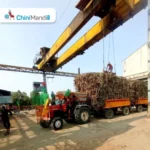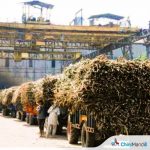Nigeria’s goal of becoming self-sufficient in sugar production is facing serious challenges as industry experts and stakeholders urge stronger efforts to increase domestic sugarcane farming and reduce dependence on imports, reports Thenationonlineng.net.
Despite support from the government and growing investment from the private sector, the country still relies heavily on imported sugar. New data shows this trend worsening. According to the Foreign Agricultural Service (FAS)-Lagos, raw sugar imports are expected to rise by 12 percent this year and next, driven by a stronger naira, better access to foreign exchange, and growing demand from consumers.
Figures from March 2025 show that about 98,000 metric tonnes of raw sugar arrived in Nigeria, underlining the gap between local production and national demand.
Dr. Victor Iyama, Chairman of the Board of Trustees of the Federation of Agricultural Commodities of Nigeria (FACAN), said Nigeria could reap major economic rewards by expanding sugarcane cultivation. “Sugarcane can do more than just make sugar,” he said. “It can help us create jobs, support rural communities, and save the money we spend on sugar imports.”
He also highlighted the potential of sugarcane for producing ethanol, a renewable fuel. He urged the government and private companies to invest in new technology, better infrastructure, and support systems for farmers to help increase sugarcane yields.
Supporting this view, Professor Daniel Gwary of the University of Maiduguri said Nigeria needs at least 100,000 more hectares of sugarcane to meet demand and provide more jobs. “We are not producing enough sugar, and that’s costing us money,” he said. “To change this, we must grow much more sugarcane.”
He pointed out that small-scale farmers are important but cannot meet the country’s growing needs alone. “Big investors need to step in. The sugar industry needs large farms and proper processing equipment, which require serious funding,” he explained.
Professor Gwary also encouraged both local and international investors to take part in sugarcane farming. He said that growing the industry would create jobs, help supply sugar mills, and boost rural economies through farm work, support services, and partnerships with small growers.
















